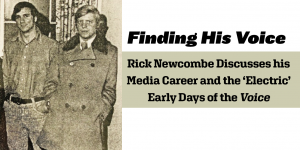After graduating in May, Will Haskell put his plans to attend Georgetown Law School on hold to vie for a seat in the Connecticut State Senate, representing the 26th district.
“I think like a lot of people, I woke up the morning after Trump’s election and felt like I had to do something, like I had to play some part in fighting against that agenda,” Haskell (COL ’18) said. As a 22-year-old Georgetown student, that meant thinking locally. “I really strongly believe that fight has to start at the state and local level.”
Haskell researched his representatives and discovered that most reflected his views, with one exception. “I came across my state senator, somebody who votes with the Republican party 97 percent of the time, somebody who filibustered to prevent kids with cancer from getting medical marijuana,” he said. “Somebody who actually stood up and said that Connecticut went too far in regulating guns after Sandy Hook, when I felt very strongly that we haven’t gone far enough.”
That state Senator, Antonietta Boucher, is now Haskell’s opponent. Boucher has held the seat since 2009 and has a long tenure in state politics, including 12 years in the Connecticut House of Representatives. Boucher has publicly defended her record on guns, as she voted for sweeping gun-control legislation in the wake of the Sandy Hook shooting and was recognized by Moms Demand Action for Gun Sense in America as a “gun sense” candidate, a distinction Haskell also received. Boucher could not be reached for comment before press time.
Discontented, Haskell wanted to volunteer in support of Boucher’s future opponent, but soon found that the Democrats lacked a challenger for her. “The response I heard was, ‘Oh, you know, she’s been in office for 22 years, she’ll probably be there another 22 years. Nobody runs against her,’” Haskell said.
Haskell decided to do it himself. He felt that letting Boucher run uncontested was bad for the Democratic party and the democratic process. And while Boucher won nearly 60 percent of the vote in the three previous elections, Hillary Clinton won the district by 23 points in 2016. “It’s fundamentally a moderate, level-headed district,” Haskell said. “It’s not Donald Trump territory, so there is no reason we should have a state senator who has embraced Donald Trump’s agenda. That’s a large part of why I decided to run.”
In March, he officially kicked off his campaign from the living room of his Nevils apartment. Haskell and his roommate-turned-campaign manager, Jack Lynch (COL ’18), invited some friends over for the launch party. They received overwhelming support. “We had hoped to raise $300,” Haskell said. “We ended up leaving the night with over $3,000. It was incredible.”
Throughout his campaign, Haskell has used his government degree—and even his French minor. “I was door knocking, there was a lady who spoke only French, and I was able to give my whole stump speech. That made the minor worth it,” he said.
Haskell’s time on the Hilltop prepared him in less traditional ways, too. He believes his four years working at the Corp’s Hoya Snaxa fostered the interpersonal skills vital to a campaign.
“A lot of that job was just making small talk, just chatting with people as they’re going about their day buying groceries, trying to sort of relate to everybody and just be a friendly face,” Haskell said. “Honestly, that’s a lot like running for office. Going and meeting people, standing at the dump on the weekend, just being a welcoming face, listening to whatever problems they have.”
Lynch wrote in an email to the Voice that the Haskell who people knew during his time on campus is the same one running for office. “The Will Haskell who speaks at campaign events, who knocks on doors, who makes calls to voters, is just as genuine and down to earth as the Will Haskell who worked at Snaxa and ate at Leo’s and went to the Tombs,” Lynch wrote. “That’s a large part of what has made him such a phenomenon in this district over the past few months. Voters can sense when someone is being their authentic self.”
After graduating, Haskell moved back to his district and into an apartment in New Canaan, Connecticut. Still living with his old roommate Lynch, he set about trying to unseat the five-term incumbent with a political career as old as he is. That would be no easy task. Her history of landslide victories in a seat that has been held by Republicans since Richard Nixon was president would be discouraging to most, but Haskell believes that he is different.
Haskell said that in the last three elections, one challenger did not have a website, and another did not knock on a single door. “She, for the past few cycles, has gone effectively unopposed,” Haskell said. “I’m almost amazed her margins aren’t higher. You’re in office with those opponents, then you should be getting 70, 80 percent of the vote.”
While running for office can be expensive, Haskell has avoided this by publicly financing his campaign. To use public funds, Haskell had to raise $15,000 to give to the state, and in return he received an $85,000 grant. Despite raising over $100,000 in her last three elections, Boucher also opted for public funding this cycle, meaning the candidates will have the same amount of money at their disposal.
On top of public funding, Haskell received additional help—the endorsement of former President Barack Obama. An intern originally suggested that Haskell contact Obama about a potential endorsement.
“I said you know what, maybe we can write him a letter, and then a few weeks later we heard that I was being endorsed, which totally blindsided me. It was so exciting and it is really an honor,” Haskell said. Obama tweeted his endorsement of Haskell on Oct. 1, alongside 259 other candidates for state and federal offices.
Because Connecticut’s Senate is split, Haskell’s race has taken on greater national importance for Democrats, who aim to reclaim state legislatures. “I do think it is less about me, and it comes down to the fact that the state Senate is tied,” Haskell said. “It’s exceptionally exciting, and it’s gotten a lot of people involved and gotten a lot of people interested in this district.”
Sens. Chris Murphy and Richard Blumenthal and Rep. Jim Hines endorsed Haskell, as well as Planned Parenthood, Run for Something, and the National Organization of Women.
But Haskell still needs to win on the ground, and as the campaign found out, that is not always easy. “Campaigns have a steep learning curve, and it’s been even steeper for Will and I as brand new college graduates,” Lynch wrote. “But we set a couple of clear goals early on and stuck to them: We’ve focused on building a really strong ground game and knocked over 4,000 doors.”
Haskell emphasized that he is always trying to reach the voters in the district and has a daily goal to knock on 40 doors. He also has volunteers participating in “days-of-action” on the weekends.
“We’re campaigning constantly and trying to meet people where they are, whether that’s at the train station meeting the commuters or at the doors,” Haskell said. He has a special focus on reaching young people and making sure they vote. “In order to do that and meet those voters where they are, you can’t go to doors, you can’t really call landlines, you have to meet them on their iPhone.”
As a young candidate, Haskell has had his age used against him by some, while other voters do not see it as a negative. At a joint candidates forum, when a Republican candidate for state representative mentioned his recent graduation from college while criticizing Haskell, the audience drowned him out with boos.
Haskell does not see his age as a handicap, but as a reason for running. He feels young people often lack voices of their own in Connecticut’s Senate. “Too often they’re making decisions that are going to impact the state for decades to come,” Haskell said. “Considering taking out additional debt on the state’s credit card, and their doing so without any input, without consulting stakeholders in Connecticut’s future, and I think that’s really problematic.”
Haskell said that young people will not want to move back to Connecticut until the state invests in advancing its cities, bettering its infrastructure, and creating an “exciting” economy. His top priority in attracting young workers to the state is paid family leave.
“I was raised by a single working mom. She had to go back to work just two weeks after I was born, and that’s true for 25 percent of American moms, but it shouldn’t be,” Haskell said. “That’s a choice that no industrialized nation should force their workers, their parents to make.”
Haskell still carries Georgetown with him, both the memory of the outpouring of support when he launched his campaign and the continued help from the community.
“The Georgetown community really rallied in a way that I was so touched by. My professors donated not just their financial contributions but also their time and advice,” Haskell said. “I get emails and calls from professors all the time, ‘Hey, I liked your most recent campaign email’ or ‘Hey, I hated your most recent campaign email.’”
“I have been obsessing for the last few months about how exactly we are going to spend this time between now and election day, and I really am not sure what is in store for me afterwards,” Haskell said. After Nov. 6, Haskell will have either won or lost. But for now, he can only think about the present.
“Somebody asked me that other day what my five-year plan is. I have an 18-day plan.”




